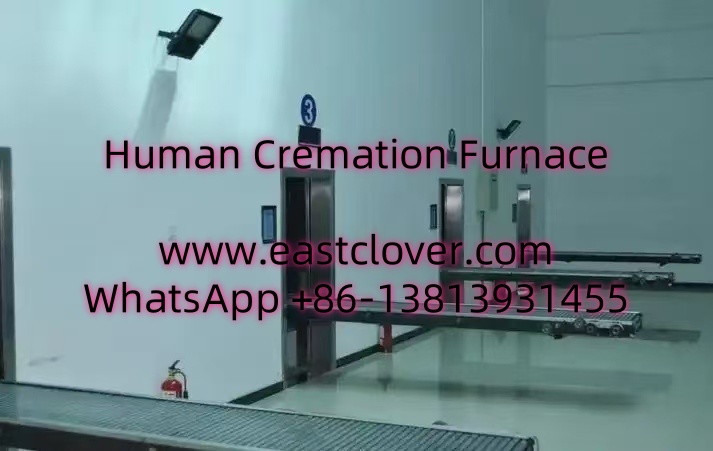Introduction
Soweto, a vibrant township in Johannesburg, has seen rapid urbanization and a growing middle class over the past few decades. With this transformation has come an increase in pet ownership, as dogs, cats, and other animals become cherished members of households. However, the emotional and practical challenges of pet loss have often been overlooked in communities where traditional burial methods dominate. Limited space, environmental concerns, and urban regulations have made it increasingly difficult for pet owners to navigate end-of-life care for their companions. This gap in services has paved the way for an innovative solution: mobile container pet cremation furnaces.
These portable units are revolutionizing pet aftercare in Soweto, offering a dignified, eco-friendly alternative to conventional practices. By combining mobility, affordability, and sustainability, mobile cremation services are not only addressing logistical challenges but also reshaping cultural attitudes toward pet loss.
Innovation in Pet Aftercare
Mobile container pet cremation furnaces are repurposed shipping containers equipped with advanced incineration technology. Designed to be transported to neighborhoods, veterinary clinics, or even individual homes, these units provide on-demand cremation services. The process involves high-temperature combustion (typically between 760°C and 1,100°C), which reduces pet remains to sterile ash while minimizing harmful emissions. Filters and scrubbers integrated into the system ensure compliance with environmental standards, addressing concerns about air quality in densely populated areas.
Key features of these units include:
- Portability: Easily relocated to meet community needs.
- Speed: Cremation cycles completed within 1–2 hours.
- Customization: Options for communal or private sessions.
- Cost-effectiveness: Lower operational costs compared to fixed facilities.
The service often includes the return of ashes in personalized urns or biodegradable containers, allowing families to memorialize their pets in meaningful ways.
Transforming Soweto’s Approach to Pet Loss
Historically, pet owners in Soweto relied on informal burial methods, such as interring animals in backyards or open fields. However, urbanization has made these practices unsustainable. Mobile cremation units offer a pragmatic and culturally sensitive alternative, aligning with both modern environmental priorities and the community’s respect for ritual.
A local provider, Phila’s Pet Memorials, has become a cornerstone of this shift. Founded in 2021, the company operates two mobile units that serve over 200 households monthly. “Many clients hesitated to cremate pets initially,” says founder Thando Mbeki. “But once they see the care and reverence we bring to the process, they embrace it as a way to honor their companions.”
Veterinary clinics have also partnered with mobile cremation services to offer end-of-life packages. Dr. Lerato Ndlovu, a Soweto-based veterinarian, notes, “This innovation has eased the burden for pet owners during an emotionally difficult time. It’s a service that respects both the animal and the family.”
Environmental and Social Impact
Beyond convenience, mobile cremation addresses critical environmental issues. Traditional burial can lead to soil contamination, while older incineration methods release toxins. Modern mobile units use clean-burning fuels like propane and incorporate particulate filters, reducing carbon footprints by up to 40% compared to conventional methods. Additionally, the ashes produced are sterile and safe for scattering or memorialization.
Socially, the service fosters community engagement. Pop-up memorial events hosted by providers allow neighbors to share grief and celebrate their pets’ lives collectively. For many residents, this communal aspect has been pivotal in overcoming the stigma associated with pet cremation.
Case Study: A Family’s Journey
When the Dlamini family’s elderly dog, Zinzi, passed away, they faced a dilemma. Their small yard couldn’t accommodate a burial, and public landfills felt disrespectful. Through a neighborhood WhatsApp group, they learned about mobile pet cremation. “The team arrived within hours,” recalls Mrs. Dlamini. “They treated Zinzi with such care, and we received her ashes the same day. We planted a tree in her memory using the biodegradable urn they provided.”
Stories like this highlight how mobile units are bridging practicality and emotional healing, one family at a time.
www.southclover.com
Mobile container pet cremation furnaces are more than a logistical solution—they represent a cultural shift in Soweto’s relationship with pet aftercare. By offering accessible, eco-conscious, and compassionate services, these innovations are helping pet owners navigate loss with dignity. As urbanization continues, such models could inspire similar initiatives across South Africa and beyond, redefining how communities honor the lives of their animal companions.
FAQs
1. How much does mobile pet cremation cost in Soweto?
Prices vary by provider and pet size, ranging from ZAR 500 (for small pets) to ZAR 2,500 (for larger animals). Many services offer payment plans or discounts for low-income households.
2. Is the process environmentally safe?
Yes. Modern units use clean-burning technology and emission controls to comply with South Africa’s air quality standards. Ashes are non-toxic and safe for memorialization.
3. Are private cremations available?
Most providers offer both communal and private sessions. Private cremations ensure pets are processed individually, with ashes returned exclusively to the owner.
4. How long does cremation take?
The process typically takes 1–2 hours, depending on the pet’s size. Ashes are usually ready for collection within 24 hours.
5. Can I witness the cremation?
Some providers allow families to observe the process, while others prioritize safety and privacy. Discuss preferences with your service provider beforehand.

Comments are closed